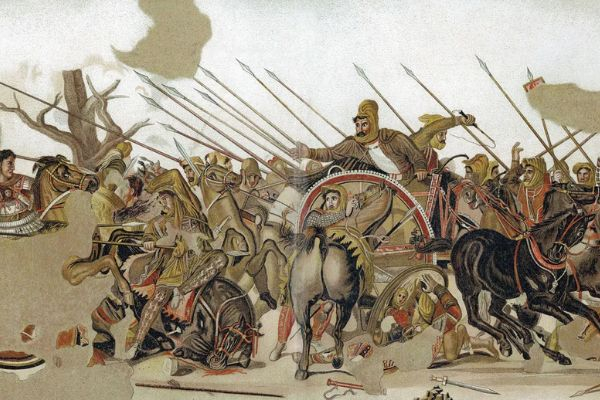Conquest Of The Achaemenid Empire – Ii. Battle Of Issus (333 BC)
Darius III, King of the Achaemenid Empire, cut off the Greek supply route after the Persians were defeated at the Battle of Granicus. He then recruited a huge army of his own and lined up a confrontation with Alexander's army south of Isus. Darius had evidently not considered his earlier setback while fighting along the river Pinarus. Alexander was on bad terrain, so he told his army to take a defensive stance. This caught Darius off guard, and he decided to shift his strategy and attack the Greek infantry. Up the hill, Alexander and his Royal Companions attacked the Persian army's left flank. On a constrained terrain, cutting up the adversary resulted in a swift retreat. Then Alexander and his elite cavalry launched an all-out assault on Darius, forcing him to escape. The Battle of Issus is seen as a watershed moment in Alexander's protracted war against Persia.
Much more is known about Alexander the Great and his military achievements, the most notable of which was the fall of the Persian Empire. Ambitious individuals have dreamed of establishing large empires and achieving immortal glory in combat for the past 2,000 years, yet none of the conquerors who attempted to achieve such goals were as successful as antiquity's first great conqueror. Alexander conquered much of the known world in less than 15 years.
The Battle of Issus: The History of Alexander the Great's Most Famous Victory against the Achaemenid Persian Empire examines one of antiquity's most significant conflicts, as well as the campaign's far-reaching consequences.











